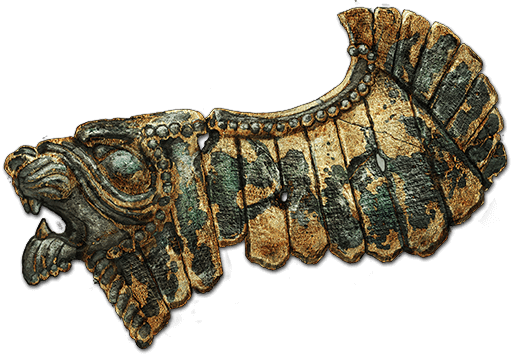W I L D E R E L V E S
Humans sometimes refer to wilder elves as “wood elves,” but this terminology is an immediate clue that the human has only a scant understanding of elven culture.
Wilder elves are excellent archers and foresters. Nearly every forest of note has a major elven colony tending its needs in order to protect its health, which includes all plant life and animal life. While this does not exclude humans from hunting or logging, they must do so in a sustainable way or risk conflict with the wilder elves. Some humans choose that conflict, yet orcs pose the bigger problem for the elves. Woodland monsters are tolerated as long as they fit into the natural order of things, but if they become too big a nuisance—as the orcs do—the elves have to deal with them as well. Ultimately, the wilder elves take these challenges seriously and have chosen a difficult path in the world.
Wilder elves understand that the best of humans have a strong heart and can be loyal companions, but these are the exception not the rule. The wilder elves keep certain considerations of humans in mind: “Their eyes are closed to the beauty that surrounds them.” “Allow your trust in a human to grow slowly, no faster than the growth of a tree.” “Few humans respect the natural order of things.” By comparison, elves seem to know more about dwarves than dwarves know of elves. Elves recognize dwarves as kindred spirits, that their love of stone and minerals is also a love of nature, but the elves believe this affection is driven more by greed and self-imposed ostracism than respect for natural forces. (“They were fine stewards of this land when it was theirs—back then, our presence was not required as it is today.”) “Never come between a dwarf and his greed.” “Yes, I respect dwarves—this doesn’t mean I’ll eat with them.”) When it comes to other elves, wilder elves see Etharch elves as the administrators and nobility of their kind. (“They tend to all the boring stuff we don’t want to be bothered with.”) Of their high elven cousins, wilder elves almost never show signs of envy. (“The high elves were first born and are therefore first among all races.” “We tend to the health of the world so they can tend to the health of the universe.”) But relations between wilder elves and orcs are very stressful as orcs have no love of nature and, indeed, relish in its destruction. (“Humans can sometimes be reasoned, with, but orcs are bent on destroying everything they touch.” “Not in my forest!”) And finally, wilder elves’ relations with dragons are rare. From time to time, a dragon will take to the forest for the woods’ seclusion and protection, and in these cases, elves will simply keep their distance. (“That’s one neck of the woods we don’t have to defend.”)
In time, all elves struggle with grief. Watching endless tragedies unfold eventually takes a toll on even a seemingly ageless life. Grief manifests in many ways, including sadness, bitterness, isolation, silence, or anger. In general, elves ameliorate their grief through the singing of sad laments, often in groups, or processions both elaborate and simple.
C H A L D E A P E D I A










